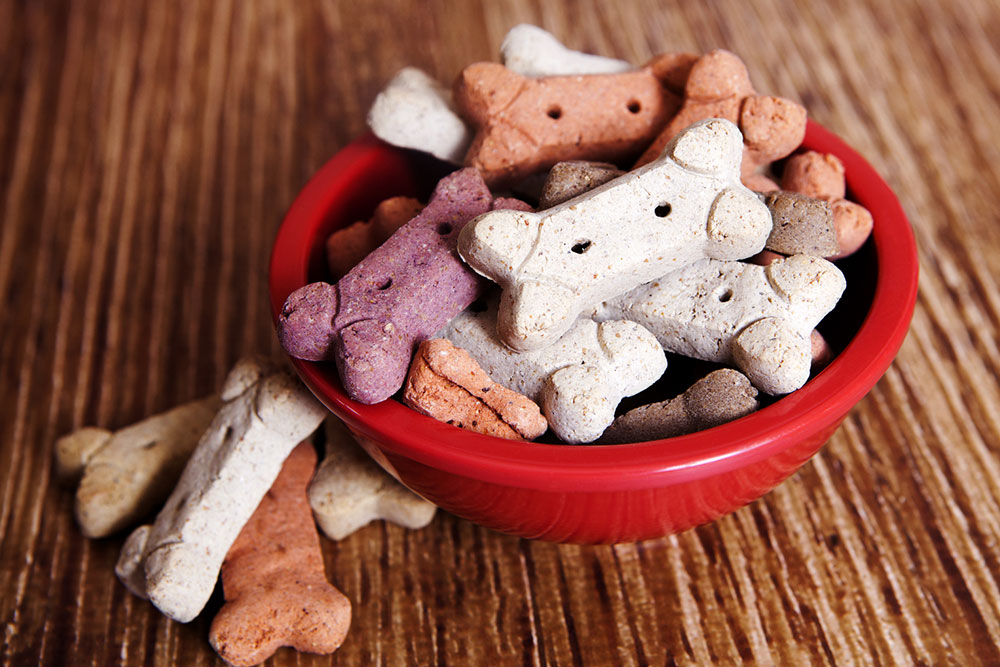Comprehensive Guide to Selecting the Best Dog Food for Your Pet's Health
Discover expert tips on selecting the ideal dog food to ensure your pet stays healthy and active. Learn about life's stages, balanced nutrition, and how to read ingredient labels effectively. Make informed choices that support your dog’s well-being with this comprehensive guide, perfect for responsible pet owners seeking to enhance their furry friend's quality of life through proper nutrition.

Choosing the most suitable dog food is a fundamental aspect of responsible pet ownership. While marketing claims can often be persuasive, making an informed decision requires a deeper understanding of your dog's specific nutritional needs. Proper nutrition plays a crucial role in your dog’s overall well-being, affecting everything from energy levels to immune function. This comprehensive guide covers essential factors to consider when selecting dog food, including life stage appropriateness, nutritional content, ingredients, and what to avoid, helping you ensure your furry companion stays happy, healthy, and vibrant throughout their life.
Understanding Your Dog’s Life Stage and Its Impact on Dietary Needs
Every dog has unique nutritional requirements that vary across different stages of life. Recognizing these stages and choosing food accordingly is vital for their development and health.
Puppy Stage: Building a Strong Foundation
During the puppy phase, a high-protein, nutrient-dense diet is essential. Puppies require increased levels of calories, proteins, and minerals to support rapid growth, muscle development, and overall vitality. Special puppy formulas are typically enriched with vital nutrients such as DHA for brain development and calcium for bone growth. Feeding puppies the right diet sets a healthy foundation for their adult years, preventing issues like obesity or nutritional deficiencies later in life.
Adult Dogs: Maintaining Optimal Health
Adult dogs have more stable energy needs that should be tailored based on their activity level, size, and breed. A balanced adult dog formula provides adequate protein, fats, vitamins, and minerals to sustain their daily energy requirements. It’s vital not to overfeed or underfeed, as maintaining an appropriate weight greatly reduces the risk of health problems such as joint issues, heart disease, and diabetes.
Senior Dogs: Supporting Aging and Longevity
As dogs age, their dietary needs change. Senior dogs often benefit from lower-calorie diets with increased fiber to support digestion and weight management. Healthy fats, such as omega-3 fatty acids, help maintain a shiny coat and support joint health. Formulations designed for older dogs also contain nutrients that support cognitive function, immune health, and mobility, helping your pet enjoy a comfortable and active life as they age.
Prioritizing Complete Nutrition for Your Dog
Ensuring your dog receives all necessary macro and micronutrients is the cornerstone of a healthy diet. Quality dog foods are formulated to provide balanced nutrition, which includes proteins, fats, carbohydrates, vitamins, and minerals necessary for complete well-being.
Essential Nutrients and Their Role
Proteins are vital for muscle growth and repair, while fats provide concentrated energy and support skin and coat health. Carbohydrates serve as a fuel source, and vitamins and minerals support various bodily functions, from immune health to bone strength. Among these, omega-3 fatty acids are particularly beneficial, promoting healthy skin and a glossy coat. Strive for formulas that include these nutrients in appropriate ratios to meet your dog’s specific needs.
Reading and Understanding Ingredient Labels
One of the simplest ways to assess the quality of dog food is by examining the ingredient list. Ingredients are typically ranked according to their proportion in the product, starting with the highest quantity. Look for foods that feature whole, recognizable food ingredients at the top, such as real meats, fish, or vegetables. Avoid products filled with ambiguous fillers or artificial additives that do not contribute nutritional value.
Ingredients to Avoid: Ensuring a Wholesome Diet for Your Pet
While some grains like wheat or corn are common in many pet foods, their benefits are often debated. Many dogs are sensitive to fillers, and these ingredients can contribute to allergies or digestive issues. Instead, focus on natural, wholesome ingredients like real meats, fruits, and vegetables. Avoid food products that include artificial preservatives, flavors, or colors, as they offer little nutritional benefit and may even harm your pet’s health. Choosing foods with minimal fillers and artificial additives ensures your dog receives a diet that truly supports their well-being.
Making informed decisions when selecting dog food not only enhances your pet’s health but also fosters a happier life. By paying attention to their life stage, nutritional balance, ingredient quality, and potential harmful additives, you can provide your dog with a diet that promotes longevity, vitality, and joy. Always consult your veterinarian for tailored dietary recommendations, especially if your dog has specific health concerns or dietary restrictions. Remember, a well-nourished dog is a happy, energetic companion who can enjoy a long, healthy life by your side.





